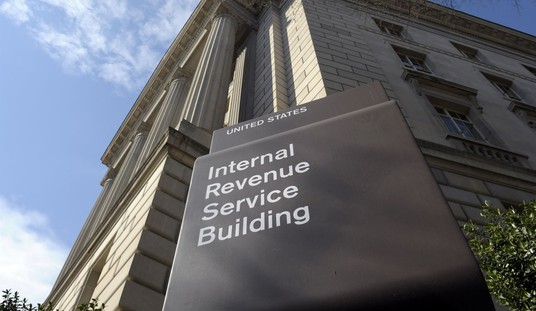Here is a simple fact: The Democratic Party does not like to renominate presidential candidates who lost in the last election. Just look at history. The 2016 losing Democrat was Hillary Clinton; the party moved on in 2020. Before that, John Kerry was the losing Democrat in 2004. He made some noise about giving it another try in 2008, and the party told him to forget it. The losing Democrat in 2000 was Al Gore. The party did not give him a second chance.
Go back to Democratic losers Michael Dukakis (1988), Walter Mondale (1984), Jimmy Carter (1980), George McGovern (1972), and Hubert Humphrey (1968). Nobody got a second run after losing. You have to go back 70 years, when the Democratic Party in 1952 nominated Adlai Stevenson, who lost, and then renominated him in 1956, when he lost again, to find a time when Democrats chose a proven loser as their nominee. And that didn't work.
Which brings the story to Kamala Harris. The former vice president lost the 2024 presidential election. Yes, she started late, and yes, she had to follow the enfeebled President Joe Biden. But Harris had a hugely enthusiastic base, all the money in the world, and glowing press coverage in her short race against a man Democratic prosecutors had indicted not one, not two, not three, but four times. And she still lost. Compared to 2020, the Democratic presidential ticket lost ground in state after state, lost all the critical swing states, and lost standing among important Democratic constituency groups, like black and Hispanic voters.
Harris' defeat, combined with the Democratic loss of the House and Senate, caused the party to begin a soul-searching exercise that continues to this day. Democratic strategists are torn between a visceral desire to base the party's entire reason for existence on attacking President Donald Trump, or trying to reform the party's positions and reconnect with lost voters. So far, the attack-Trump side is winning.
Recommended
For 2028, the first question Democrats must grapple with is: Do we want to renominate Harris? The answer to that question lies in the party's history, for all to see. And it appears Harris has gotten the message.
"Friends, former aides, and advisers say Ms. Harris, 60, still thinks she would have beaten Mr. Trump if she'd had more than 107 days to campaign -- the implication being that former President Joe Biden should have quit the race earlier," reported the New York Times this week. "Yet some of her closest allies say she is leaning against another White House run in 2028 and, instead, toward a campaign for governor of California in 2026. Her political choice is binary, she has told people: She can run for governor or president, but not both."
The first part of that passage suggests Harris has settled on the belief that she didn't really lose the 2024 election -- Biden did. But the second part suggests that, whatever the truth, Harris has gotten the message that another presidential run would not succeed, even in securing the Democratic nomination.
Of course, victory in a race for governor of California is not guaranteed, either. On the one hand, to quote a recent Los Angeles Times analysis, "Polls show that Harris would become the instant front-runner if she decides to jump into the governor's race. Not only is Harris known nationwide as a former vice president and presidential nominee, but she has a well-established track record of winning statewide races in California."
On the other hand, the governor's race is already well underway. The front-runner is former Los Angeles Mayor Antonio Villaraigosa, who has big money support from celebrities such as Rob Reiner, as well as business figures such as former Walt Disney chairman Michael Eisner, according to the L.A. Times. Would a Harris entry cause everyone to stop and support her?
What's more, Harris is already making clear that she regards the position of governor of California as a platform from which to attack Trump. "She has watched with horror as institutions Democrats care about -- universities, law firms, and more -- have caved under pressure," the New York Times reported. "And she believes that as governor of the nation's most populous blue state, she would have a powerful platform from which to push back against Mr. Trump and his policies, and to defend Democratic priorities and values."
If that is what Harris is thinking, she'll have two problems. One, she'll have to get in line to bash Trump; that's already clear. And two, Trump will leave the White House after the first two years of her term. She can spend the remaining two years blaming the guy who is gone, but California voters may want more forward-looking leadership.
The Times reports that Harris is considering other paths that don't involve running for office. She might want to write a book and give speeches if there are publishers and audiences willing to pay enough for it. She also might want to establish a "policy institute" at a university, a Kamala D. Harris Institute for Advanced Political Studies or something like that. She hasn't decided.
Meanwhile, the former vice president's husband, Douglas Emhoff, is said to be making $6 million a year from the law firm Willkie Farr & Gallagher, which he recently joined. This means Kamala Harris might have another option for something to do: Nothing. She doesn't have to run for office. She doesn't have to give speeches. She doesn't have to set up an institute. She can dabble in things she enjoys. Travel. Give advice to aspiring politicians. And, of course, dump on Donald Trump. She would probably do that for free, anyway.























Join the conversation as a VIP Member